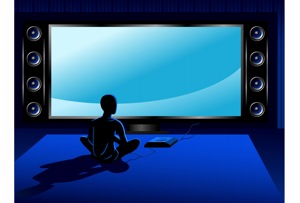
Can't fall asleep? You may need to turn the lights off earlier. Studies show exposure to light after dusk, particularly light from computer screens, iPads, iPhones, televisions, and other electronic items, significantly inhibits the production of melatonin, your body's sleep hormone. For the person with Hashimoto’s hypothyroidism, this is important as appropriate melatonin production helps modulate autoimmune disease.
Insomnia is a national problem, affecting about 30 percent of Americans and fueling a $2 billion sleep medication industry. Although prescription sleep medications are common, they also come with troubling side effects and a four times higher risk of death.
Melatonin supplements may be a problem for Hashimoto’s hypothyroidism
The natural sleep aid melatonin may be safer but can disrupt your body's delicate balance of hormones and create a dependency. Research shows it also stimulates inflammation, which could worsen Hashimoto’s hypothyroidism in some people.
LED lights suppress melatonin
The best natural sleep aid may be to change your lighting after dusk. Although going light-free in the evening is too much to ask, you can boost melatonin production by reconfiguring the kind of light to which you expose yourself.
Although any kind of light can suppress melatonin, research shows the worst offender is light with blue wavelengths. LED bulbs, though hailed for their energy efficiency, are dominant in blue light and suppress melatonin five times more than orange-yellow light bulbs. One study showed that exposure to room light (compared to dim light) before bedtime shortened melatonin duration by about 90 minutes, and that exposure to light during usual sleep hours suppressed melatonin by greater than 50 percent.
Examples of light sources high in melatonin-suppressing blue light include:
- LED light bulbs
- Computer monitors
- Laptop computers
- iPads, iPhones and similar devices
- Hand-held video games
- Electronic gadgets
- LED televisions
- LED digital clocks
Melatonin helps prevent dementia, cancer, obesity, and autoimmune flare-ups
Melatonin does more than deliver a good night's sleep. Numerous studies have linked poor melatonin activity and a disrupted sleep-wake cycle with an increased risk of cancer, an increased risk of dementia and Alzheimer's, more autoimmune flare-ups, obesity, and other health issues. Supporting your body’s ability to manufacture appropriate amounts of melatonin can be one tool in the management of Hashimoto’s hypothyroidism.
Creating a sleep-friendly environment for Hashimoto’s hypothyroidism
A sleep-friendly solution is to configure your lighting so that it mimics the light of a fire, which is rich in red and yellow wavelengths. This could mean shutting off the overhead lights and using floor and table lamps with orange and yellow bulbs in the evening. Of course, it also means forgoing computer and television use, especially just before bedtime. It may sound drastic, but for the person with persistent insomnia, these changes can help.
Other ideas to simulate our pre-industrial light-dark cycles include:
- Adjust your sleep schedule to more closely mimic the sun's
- Install Flux, a free download that reduces blue light emissions from your computer screen
- Wear orange safety glasses at night
- Check out the melatonin-friendly bulbs and glasses at Low Blue Lights
- Enhance melatonin production during the night by blacking out your windows or wearing a sleep mask
- Balance blood sugar—insulin resistance (high blood sugar) typically makes it harder to fall asleep, while hypoglycemia (low blood sugar) will have you jolting awake at 3 a.m., wide-eyed and anxious—when this happens, eating a little protein may help you fall back asleep. Ask my office how to balance blood sugar.
- Address chronic stress issues that may elevate the stress hormone cortisol and suppress melatonin during the night. Ask my office for more information.



Latest from the Blog
The Death of Red Dye #3
January 15, 2025What Is Red Dye No. 3? Red Dye No. 3, or Erythrosine, is a synthetic food color derived from coal tar. It was first approved by the FDA in the 1950s and quickly became one of the most popular artificial colors in food and cosmetics. Red Dye No. 3 was used in everything from candies, […] Read more
Latest from the Blog
Do You Know What Is In Your Protein Powder?
What’s Really in Your Protein Powder? Understanding the Risks Protein powders are a staple in many health-conscious diets, from athletes seeking muscle recovery to those simply aiming to boost their daily protein intake. With a wide variety of options available, choosing the right one can feel overwhelming. However, recent findings have raised concerns about what’s […] Read more